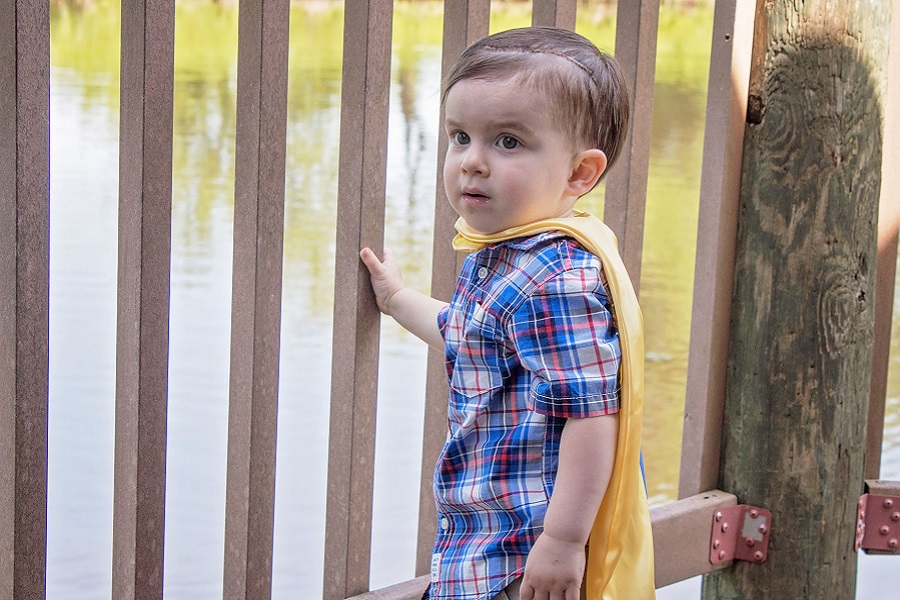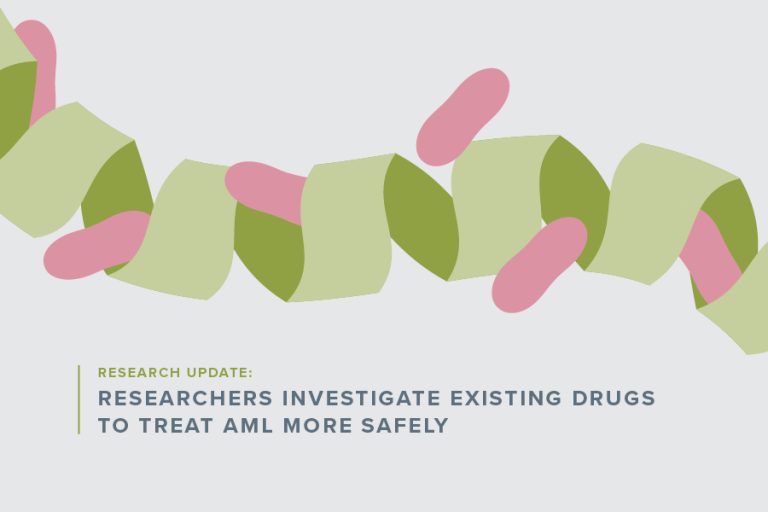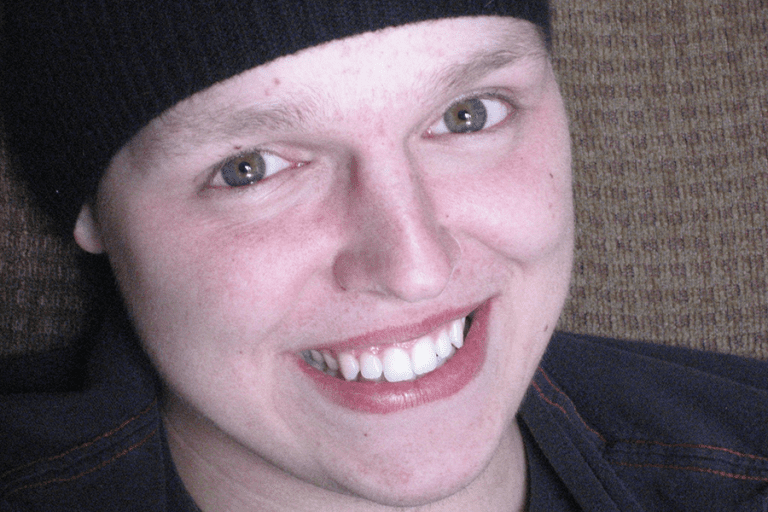Connor (above) is a brain tumor survivor. To learn more about him, read "Connor's Story - Shining Hope."
A new brain tumor treatment developed by researchers Christopher Moertel, MD and Michael Olin, PhD received Investigational New Drug (IND) approval from the FDA this summer.
This means the drug has been given the “okay” to be used for human patients and is a step closer to being ready for children with fatal brain tumors. The treatment, called a checkpoint inhibitor, has promise to help a child’s body effectively combat brain tumors when given a vaccine.
Dr. Olin discovered that brain tumors sometimes shield themselves with a protein called CD200, preventing a child’s immune system and treatment from attacking it. His goal was to “turn off” this shielding CD200 protein, allowing a previously developed vaccine and the child’s immune system a chance to eradicate the brain tumor.
“CCRF's support for our early experiments got this going to the point of a FDA-approved clinical trial,” Dr. Moertel said. “Now, CCRF support for the clinical trial itself brings this seven year project to its climax.”
Given the rise of the COVID-19 pandemic, which halted research in labs throughout the country, Drs. Moertel and Olin were excited to receive IND approval. “It was a very rigorous process,” Dr. Moertel said. “Now, we are going through the regulatory process at the University of Minnesota and Fairview.”
Before the coronavirus hit, Dr. Moertel said their research team was gearing up for lab monitoring. He notes that lab monitoring preparation is vital for clinical trials like this, and that the pandemic delayed their work.
Now that they received FDA approval and are going through the regulatory process at the U of M, here is what they plan to do next:
- Begin an adult trial in late September 2020. They anticipate enrollment should take less than 18 months. Dr. Moertel said all new drugs have to be proven to be safe in adults before the FDA allows administration to children. Doctors will also do dose escalation, meaning they will be treating adults with escalating doses so they can achieve a maximum tolerated dose. This will help guide how much of the treatment to give children in their clinical trial.
- After the adult trial, they plan to start the pediatric trial. It should take about two years to complete enrollment.
- Once the children are enrolled, researchers will follow the patients’ progress for at least two years. Dr. Moertel said these cases will be challenging to treat, and that they plan to enroll patients who have relapsed and have a poor prognosis. “We are hopeful that many of our patients will be long term survivors with this new therapy,” he said.
According to Dr. Moertel, the previous invention of the immune checkpoint inhibitor has already made a huge difference for thousands of people around the globe. Their effort to build on it at the University of Minnesota may make all the difference to those suffering from brain tumors.
Read more about this breakthrough at ChildrensCancer.org/clinical-trial-takes-aim-at-brain-tumors
Your Gift Pushes Research Forward
Your gift to Children's Cancer Research Fund allows researchers to translate their great ideas into groundbreaking clinical trials. Your dollar could be the dollar that funds the next breakthrough for children with cancer.





